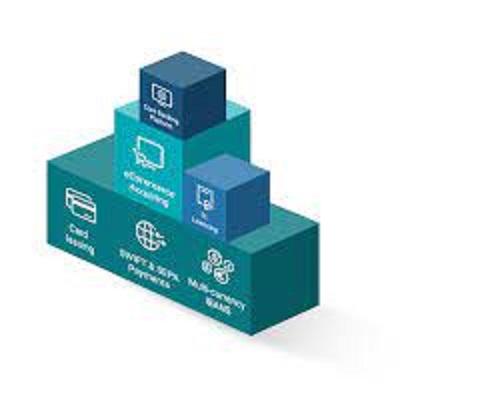Africa-Press – Lesotho. Banks rely on a number of banking technology solutions, which can be categorised into three groups – infrastructure as a service, platform as a service and software as a service.
Infrastructure is, of course, crucial to the operations of any banking group and is, thus, high priority – although it would be a mistake to assume that banking infrastructure in Africa is necessarily inferior to elsewhere in the world.
“In many cases, banks in African countries have better modern infrastructure than Western banks and financial institutions,” says Chet Kamat, CEO and Managing Director of Oracle
Financial Services.
“African banks have been able to leapfrog many of their Western counterparts by implementing up-to-the-minute technology platforms from the start, rather than having to undertake complex integrations with, and migrations from, legacy banking systems,” he adds.
Oracle is active in terms of providing banks in Africa with core banking systems. Another global IT banking solutions giant and perhaps Oracle’s closest rival in Africa, is IBM.
According to Mustansir Yaqub, a sales manager at IBM, “a number of banks in Africa have based their critical banking applications around IBM infrastructure”.
IBM provides banking technology solutions in a number of African countries; it has a legal presence in 24 African countries and a presence in 16 additional countries through business partners.
The company identifies its core markets as Nigeria, South Africa, Kenya, Angola, Egypt, Tunisia and Morocco, with Ghana, Tanzania, Mauritius and Mozambique also being important emerging markets for the company.
Among the banks that IBM has worked with are the Commercial Bank of Ethiopia – the largest bank in the country – Family Bank and National Bank of Kenya in Kenya, Rawbank in Democratic Republic of Congo and Central Bank of Nigeria and Fidelity Bank in Nigeria.
The provision of data centres is a key infrastructure solution, which IBM offers to financial institutions working on the African continent. IBM is setting up data centres for banks in a number of countries including Rwanda, Tanzania and Ghana.
It is currently working with two investment companies – one from Nigeria and one from Mauritius although their identity is being kept confidential – in order to offer them data centre support; IBM is currently setting up seven data centres and deploying small instances of IBM solutions that these companies then plan to resell to banks in their home markets.
Major banks in Africa are keen to ensure that their core banking software is state-of-the-art and allows for efficient, smooth and uninterrupted operations in a complex transactional environment.
In other words, there is a desire to update or replace outdated legacy systems, which tend to be disconnected and unintegrated, and thus complex and expensive, as well as more exposed to the dangers of operational downtime.
Standard Bank, for example, has identified migrating from legacy systems to a new core banking system as one of its major challenges. Furthermore, the transition phase “requires an interim phase of running both old and new systems simultaneously”, according to the bank.
The bank’s Corporate & Investment Banking arm is currently working to replace legacy systems with a new core banking offering, Finacle – which although standardised as a whole can be tailored in some aspects in response to the operational environment of the different countries in which Standard Bank works.
“The implementation and renewal of IT infrastructure across the group is expected to drive revenue growth through improved business flexibility, the faster development, launch and distribution of products, and greater agility to respond to market pressures,” says the bank.
To improve the customer experience, their systems are being designed to include an end-to-end customer relationship management capability “to provide us with a single view of all interactions a customer has with the bank. This will help us improve customer service and enhance our ability to cross-sell products”, according to Standard Bank.
It will be assessing the performance of the standardised platforms in terms of the extent to which it eases operating costs – for example, in terms of IT and product development – and also in terms of its impact on the bank’s ability to retain customers.
Flexcube powers Nedbank-Ecobank network
In January, Oracle announced that Nedbank had decided to update its infrastructure using Oracle’s Flexcube. Oracle will create a single operating platform for Nedbank’s work across five southern African countries – Zimbabwe, Namibia, Malawi, Swaziland and Lesotho.
It will also allow Nedbank to align itself better with the Ecobank-Nedbank alliance. This network, spanning 35 countries and made up of 1,500 branches is already making use of Flexcube.
“We will be consolidating our operations across the region by leveraging the capabilities of Oracle Flexcube and the experience the team has in delivering the projects in Africa.
When we are complete with the migration from our existing application to Flexcube we will have a common operating platform in the 35 countries of the EcoBank-Nedbank alliance, the largest banking network in Africa,” said Fred Swanepoel, Chief Information Officer for Nedbank.
“Nedbank is taking an important step forward in streamlining its business operations to improve service delivery and enhance the customer experience across its network.
Oracle Flexcube enables Nedbank to achieve its goals for consolidation to the bank and also enables Nedbank to design products and test the same before launching them across the countries from its facility in South Africa,” Chet Kamat of Oracle also said.
Smaller-scale banks are following the same trend. At the end of 2013, in Ghana The Royal Bank in Ghana and Ghana City Investment Company along with NDK Financial Services invested in Temenos T24 core banking software with the support of Global Solutions.
The software is replacing the firms’ older legacy banking systems. The new software’s more cutting-edge capabilities include scalability and the ability to incorporate features like mobile functionality. It is hoped that the T24 software will make it easier and faster for banks to design and introduce new banking services and products.
For More News And Analysis About Lesotho Follow Africa-Press






